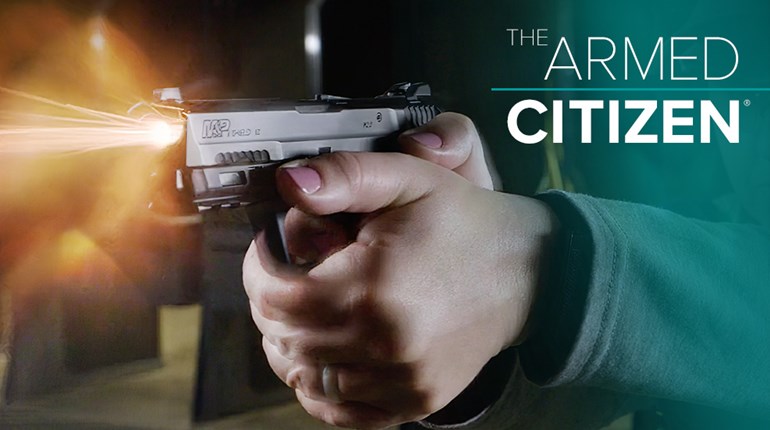
Chalk one up for the good guys.
On Sept. 18, the Utah Supreme Court held that an employee’s right to self-defense is more important than an employer’s right to fire that employee—even an employee that can be fired without specific cause (an “at-will” employee)—for defending him- or herself from violent crime while on the job.
The case, Ray vs. Wal-Mart Stores, Inc., arose after two incidents in which five Wal-Mart employees were fired for using force to defend themselves from armed shoplifters.
In one case, three employees of the Layton, Utah, Wal-Mart were fired after they had defended themselves from an armed shoplifter who had concealed a laptop computer in his pants. When they escorted him to the store’s security office and the thief pulled out a handgun and pressed it to the back of one of the employees, other employees intervened, took away the thief’s gun and held him for police. Can an employer fire somebody for refusing to take a bullet for the company?
In the second case, two employees of the West Valley City, Utah, Wal-Mart were fired after they accosted a fleeing shoplifter. When she pulled out a pocket knife and threatened to stab the employees unless they let her go, they held on until a customer helped disarm the shoplifter.
In both cases, Wal-Mart’s “justification” for firing the employees was that they had violated company policy dictating that they disengage, withdraw and contact police if a shoplifter is armed, threatens to use a weapon or becomes violent.
One of the biggest problems with that, of course, is the same problem that confronts innocent victims wherever there’s a statutory “duty to retreat”: Sometimes retreat is impossible, and sometimes retreat can cost you your life.
As former NRA President Marion Hammer testified before the Florida legislature when it considered “Stand Your Ground” legislation: “No one knows what is in the twisted mind of a violent criminal. You can’t expect a victim to wait before taking action to protect herself and say: ‘Excuse me, Mr. Criminal, did you drag me into this alley to rape and kill me or do you just want to beat me up and steal my purse?’”
Utah Supreme Court Justice Christine Durham phrased it almost as succinctly, when she asked Wal-Mart’s attorney whether it was acceptable “that an employer can fire somebody for refusing to take a bullet for the company?”
A majority of the Utah Supreme Court apparently agreed, concluding in part that “... an at-will employee who is fired for exercising that right [of self-defense] may maintain a wrongful termination action ... if the employee faced an imminent threat of serious bodily harm in circumstances where he or she was unable to withdraw...”
What’s more, what seems reasonable and prudent in the safe and quiet confines of a courtroom after the fact may not be what’s on the mind of a terrified victim as she looks down the muzzle of a criminal assailant’s gun. Nor can victims be reasonably expected to read the minds of their assailants, let alone predict the future when they believe their lives are in imminent danger.“They’re in an office, writing little lawyer things. They don’t know what it’s like to feel like your life is in jeopardy.”
As Gabriel Stewart, who was manager of the Layton, Utah, Wal-Mart before she was fired, told Fox 13, “They're in an office, writing little lawyer things. They don’t know what it really feels like to be scared and to feel like your life is in jeopardy.”
In explaining its common-sense ruling, the Utah Supreme Court noted that “a policy favoring the right of self-defense is also of broad public importance because it protects human life while deterring crime...” and “that policy is of sufficient magnitude to qualify as a substantial public policy exception to the at-will employment doctrine...” The court also cited other court decisions and state laws upholding the right of self-defense, including Utah’s “Stand Your Ground” law.
It’s a shame that in our lawsuit-happy society, sometimes corporations seem more concerned about protecting themselves from lawsuits than allowing their employees to protect themselves from potentially lethal attack.
But corporations should also consider their own potential liability if—by forbidding employees from exercising their most fundamental human right, the right to defend one’s own life—they create an environment in which their employees are rendered effectively defenseless.
Couldn’t employers, in such cases, be considered accessories to murder?


































